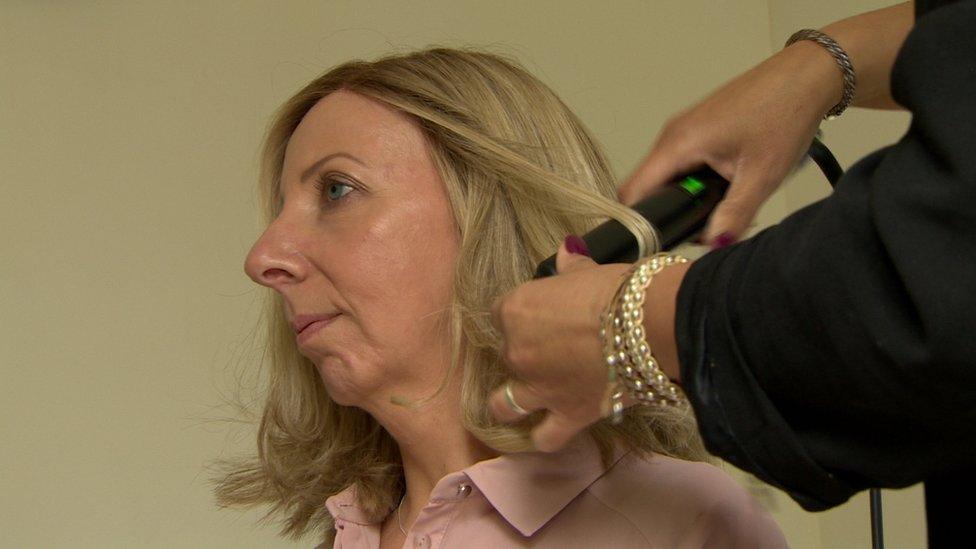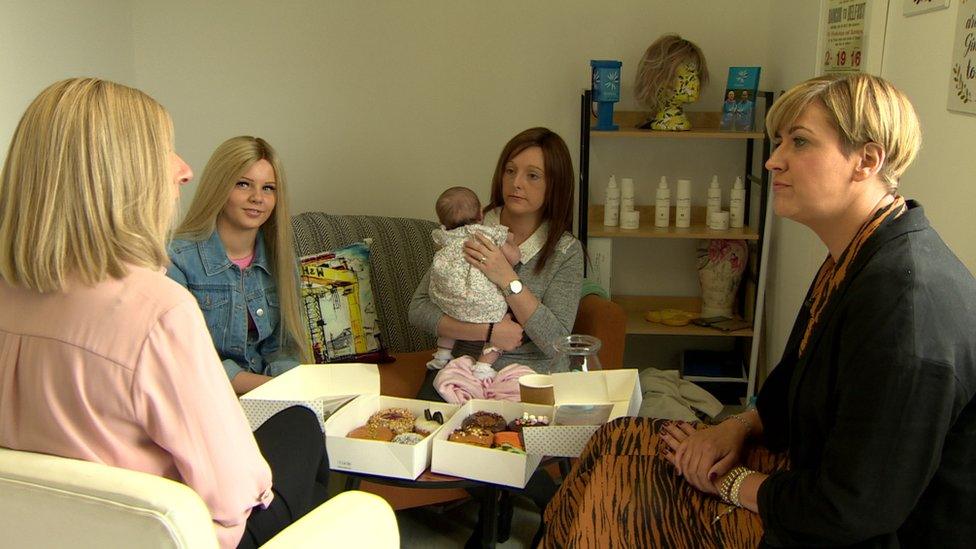Trauma of hair loss 'should not be underestimated'
- Published

Charlie McGrory says she experienced cruel comments about her hair loss
The mental trauma suffered by those who have lost their hair should not be underestimated, a support group has said.
There are calls for greater support services given the thousands of people every year in Northern Ireland who have to access a wig service as a result of cancer treatment, or who live with alopecia.
The health service offers a free wig fitting service which caters for oncology, haematology, transgender, and dermatology patients.
However, demand is so high that patients often have to wait months for an appointment.
Charlie McGrory, 17, started losing her hair when she was three.
By the time she was eight, she required a wig.
Now in the middle of her GCSEs, she said that while most people are kind, she has experienced cruel comments.
"Most of my friends have accepted it. In earlier years there were some smaller incidents, but you can't let it get to you, you can't let it get you down," she told BBC News NI.

Linda McIlwrath, who survived cancer, said she didn't feel like a woman after she lost her hair
Cancer survivor Linda McIlwrath said that when she lost her hair after treatment, she didn't feel like a woman.
"I lost my hair within a week - hair, eyebrows, eyelashes, it affected my nails - I was totally devastated," she said.
"I felt so vulnerable. It stripped me of all my confidence and I just wanted to hide away.
"I saw a person, I didn't see a woman."

Lemonade Wigs was set up by Nicola Matthews (right)
The women are part of a support group that help others get through the trauma of losing their hair, and also directs them to services including how and where to purchase wigs.
Nicola Matthews, who launched Lemonade Wigs in response to the growing demand for hair replacement, said hair loss was "very much like a taboo subject".
"It should be celebrated; people should bring family members and talk openly about it," she said.
Huge demand
Ms McIlwrath says that while the health service offering is good, she thinks patients deserve greater choice.
"The service available via the NHS is good but most people like wigs that use natural hair as anything else can be irritating on the head," she said.
"I just think patients shouldn't be confined to just one particular place."
For Danielle Lynch, who has alopecia, getting the right wig not only brought back her confidence, she said it saved her life.
"There is help out there. It's not the end of the world and getting the right wig makes things get better."